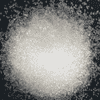
Sodium nitrate
Unknown Risk
Alternate Names:
- chile saltpeter
- chile saltpetre
- cubic nitre
- soda nitre
Info from food-info.net:
- Description:
- Function:
- White powder used as a preservative and against fading of natural colours.
- Origin:
- Naturally occurring mineral. Also present in nearly all vegetables.
- Side effects:
- Nitrates have no side effects; however, they may be converted into nitrite (E250) either by heating or when present in the stomach.
Dietary restrictions:- None - nitrites and nitrates can be consumed by all religious groups, vegans and vegetarians.
Acceptable daily intake:- Unknown
Status:- Unknown
Info from proe.info:
- Description:
- Benefits:
- Unknown
- General:
- Unknown
- Harm:
- Unknown
- Legal:
- Unknown
- Use:
- Unknown
- Links:
- Unknown
Dietary restrictions:- Unknown
Acceptable daily intake:- Unknown
Status:- Unknown
ninamvseeno.org -- site no longer live
- Description:
- Sodium nitrate is a salt used as a preservative or colorant in products such as cheese, meat and meat products, pizza, etc. It is also present in fertilizers, pyrotechnics, smoke bombs, glass, ceramic enamels, solid rocket fuels. Nitrates are not toxic, but when added to meat they are converted to nitrites. They react with proteins to form nitrosamines, some of which are carcinogenic, cause DNA damage and increase brain cell death. Studies have shown a link between nitrates and increased mortality from diseases such as Alzheimer's, Parkinson's and diabetes. Nitrosamines, which are formed in the stomach, have been linked to cancer of the stomach and esophagus, including colon cancer, according to the World Cancer Research Fund UK. The carcinogenicity of nitrosamines has also been demonstrated in experimental animals. Other health effects of nitrates include a bluish tint to the skin, lips, nausea, rapid heart rate, loss of consciousness, coma and death. Prolonged exposure to lower nitrate levels results in increased urine output and splenic bleeding. It is definitely not suitable for pregnant women, babies under 3 months of age and is not recommended for children. The is 5 mg/kg of body weight. Nitrites and nitrates are used because they inhibit the growth of bacteria, and opponents of the use of nitrites and nitrates believe that freezing and refrigeration would be sufficient for this purpose.
Dietary restrictions:- Unknown
Acceptable daily intake:- 3,700 mg/kg body weight/day (EFSA, 2017)
Status:- Approved in the EU.
References: